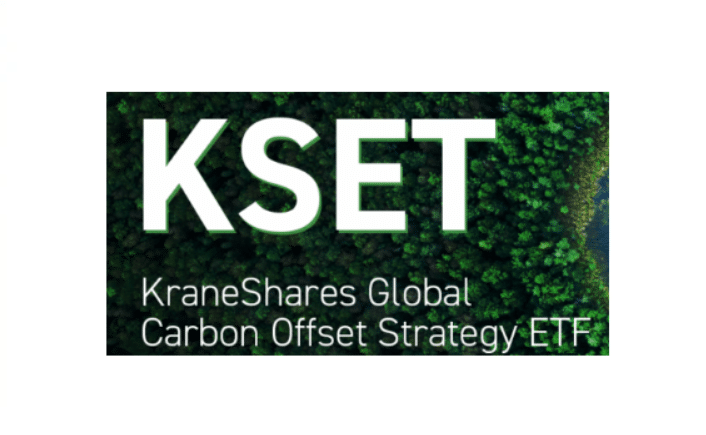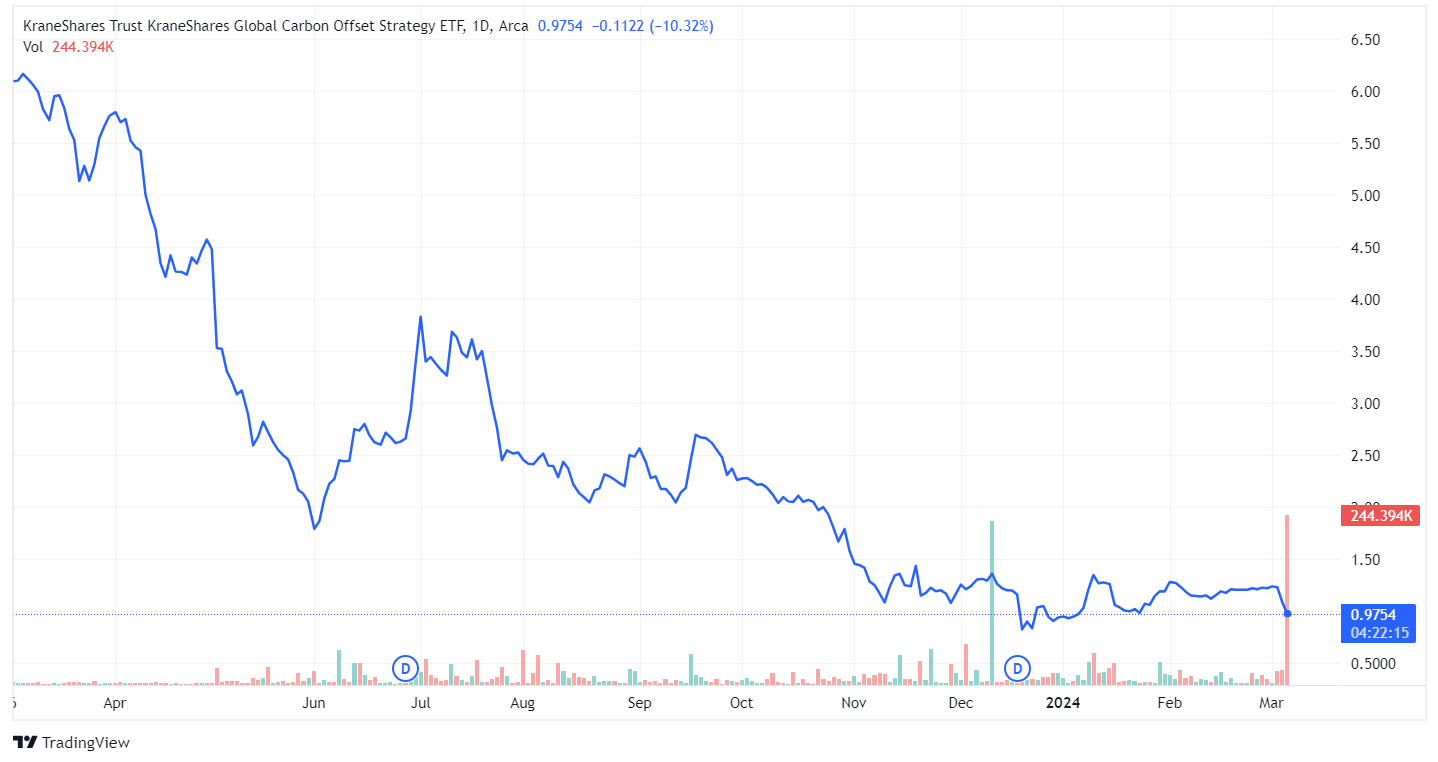The KraneShares Global Carbon Offset Strategy ETF (KSET) will halt trading this month due to a lack of investor interest following a significant decline in carbon prices within the voluntary carbon market (VCM). The trading of KSET will be halted along with 3 other ETFs dedicated to China.
Exchange-traded funds, ETFs, serve as vehicles for retail investors to access various asset classes, including equities and commodities. ETFs offer investors exposure to companies involved in carbon markets, renewable energy, and climate-related initiatives.
By investing in ETFs focused on carbon markets, investors can support the transition to a low-carbon economy while potentially generating financial returns. These ETFs provide diversification benefits by offering exposure to a range of companies across sectors involved in addressing climate change.
The Rise and Fall of KSET
With the growing importance of carbon markets in mitigating greenhouse gas emissions, ETFs serve as an accessible and efficient investment vehicle for investors seeking to incorporate sustainability into their portfolios.
Launched less than two years ago on the New York Stock Exchange amid high anticipation for VCMs, KSET aimed to provide retail investors with access to carbon markets.
Known for its diverse range of ETFs, KraneShares has been introducing innovative investment solutions to the market. KraneShares has expanded its portfolio to include the KEUA (European Carbon Allowance ETF) and KCCA (California Carbon Allowance ETF) introduced in October 2021.
The asset management firm builds on the success of its previous ventures, such as the KRBN Global Carbon ETF launched in 2020, which offers exposure to carbon credits from the EU ETS, California’s CCA carbon credits, and the RGGI of the northeastern United States.
KraneShares’ commitment to providing investors with unique and forward-thinking investment strategies was evident through the launch of KSET. However, economic turmoil soon after its inception led to a decline in the ETF’s value.
Krane announced that KSET, along with three other ETFs focused on China, will cease trading on the NYSE on March 14, 2024. The decision comes as the ETF struggled to maintain interest from investors.
As seen in the chart from Trading View, KSET trading price has sharply dipped. From trading over $6 in March 7 last year, current price plummeted to below $1. That represents an 85% decrease in trading price.
Investor Sentiment: Challenges and Opportunities in VCM
While KSET was the pioneer ETF dedicated to voluntary carbon offsets, other similar funds have emerged since its launch. Krane emphasized that its ETFs tracking compliance carbon markets, including KRBN, KCCA, and KEUA, will continue to operate.
Luke Oliver, Krane’s head of climate investing, expressed optimism about the long-term prospects of VCMs but acknowledged investors’ current reluctance to engage with VCMs through ETFs. He remarked that:
“Investors are just not ready to allocate to the VCM in this format at this time and fine-tuning our ETF offering is a constant process. We will continue to monitor the market closely.”
The voluntary carbon market has been scrutinized for questionable offsets delivered by some projects. Last year has been a trying time for the VCM when prices were plummeting, particularly nature-based carbon offsets.
However, this year is seen to be the turning point for the market as reports show notable results. Viridos AI report saw January 2024 having more carbon credit retirements in comparison to the same month last year. And companies are not just after buying carbon offsets; they’re more into prioritizing credibility and real impact.
- RELEVANT: Carbon Prices and Voluntary Carbon Markets Faced Major Declines in 2023, What’s Next for 2024?
ETFs are just one option to invest in carbon market assets and there are other investment vehicles in place. Go over this guide to learn more about how to invest in the market.
While the halt of KSET highlights current investor apprehension, it also signals the evolving nature of VCM investments. As the market matures and regulatory standards strengthen, opportunities for sustainable investing in carbon markets may become more robust.


